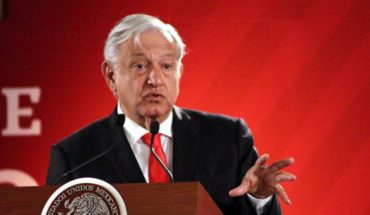The leader is the guide, the driver, the boss, we call this role or function the leadership, the condition of leader, on the other hand, leadership is the superiority of an organization in a competition, sports, commercial or political.
It is known that Britain has traditionally been governed by the duopoly of the Labour or Conservative parties, or that the United States of America has been governed by the Democratic or Republican parties. In Britain the majority of the population of workers and employees, also farmers and professionals, more liberal in their cultural references – value – usually feel interpreted by the Labour proposals; on the other hand, entrepreneurs, high-income employees, rich farmers, successful professionals linked to entrepreneurship, more conservative and traditionalist in their cultural – moral – referents traditionally feel represented by the Conservative Party. In the United States, in a similar way the most progressive sectors due to their economic, social and value formation feel interpreted by the Democratic Party, on the other hand, the entrepreneurs, who have higher incomes, those who have been formed with traditional values, even discriminatory, patriarchal and racist preferentially support the Republican Party. In general terms we can well say that Britain has been predominantly labor and the United States is predominantly democratic, as Argentina is Peronist, Mexico PRI – supporter of the PRI (Institutional Revolutionary Party).
Here in Chile the electorate was preferably centrist with the Radical parties from the thirties to fifties or Christian Democrat from the sixties until not long ago. But in the present, after the social revolt of October 18, 2019, after the triumph 80% over 20% of the Approval over the Rejection in the Plebiscite by the Constitutional Convention, as well as by the triumph 75% over 25% of the center left, left and related sectors over the right and extreme right in the election of the representatives to said constituent, where the latter did not even get the third of representation that allowed them to control their elaboration through the application of the right of veto granted by the application of the quorum against majority of 2/3, a condition imposed by them to accept the constituent assembly. The truth then is that the political center would have contracted or liquefied in favor of the political extremes, which, moreover, together with crime and drug trafficking has become one of the axes of the campaign of terror that the extreme right is trying to impose quite successfully among the other presidential campaigns.
The electoral processes in these countries are resolved according to the convening capacities of their hegemonic parties, good leadership, that is, a set of political proposals that interpret the economic, social and value interests of the sectors and interests that it claims to represent will summon their respective “clientele”, if it also has a good leadership to lead the campaign, all the better, on the other hand, if these proposals are poor, ambiguous or not credible, little will convene them or will do so insufficiently to obtain an electoral majority. A political sector is on the way to success if it manages to make the call to “its own”, likewise, its success will be assured if it has a good personal leadership that leads it.
It is clear that in the US in 2017 the triumph of Donald Trump was due to his high call among the most conservative sectors of the US, as well as, to the lack of credibility for the Democratic clientele of the political proposals of that party represented by the leadership of Hillary Clinton, by the way she obtained more votes than him, but the leadership of the Democratic proposal and the leadership of the candidate were insufficient. The Brexit , exit from the European Union (EU), and labour’s defeat in Britain in 2019, was due, on the one hand, to the traditional Eurosceptic spirit of the Conservatives, on the other and also, to the reluctance of British workers to remain in the EU since their labour rights have been seriously affected, since they are now not negotiated in London but in Brussels, In short, they cannot go to negotiate in Brussels where the labour policies of the whole EU are decided. Workers were also reluctant to vote for the leadership of Jeremy Corbyn, of the Labour left and the Euroesce himself.As he had chosen to abandon his “ambiguity” and decided to support Britain’s stay in the EU to maintain the unity of the party, Labour lost the 2019 election, with the most serious defeat since 1936, and Corbyn has had to leave the leadership of the Labour Party, his understanding of the defeat was clear, he said: “We will learn the lessons of this defeat, especially by listening to the lifelong Labour voters we have lost in working-class communities.”
A good example of the game of mobilizing or demobilizing capacities of political leaders and leaders were the last presidential elections here in Chile, during the year 2017. In the first presidential round Sebastián Piñera, leader of the right, with 2,418,540 votes obtained 36.64% of the electoral preferences, meanwhile Alejandro Guillier, leader of the center left (former New Majority), who with 1,498,040 votes managed to pass to the second round by obtaining 22.70%, instead against all odds Beatriz Sánchez, representative of the new left (Broad Front), reached 20.27% with 1,338,037 votes, almost reaching Guillier, for its part, Carolina Goic, presidential candidate of the DC, the center, only obtained 387,784 votes, for a squalid 5.88% of popular support.
Doing a hypothetical electoral exercise, if we grouped for Piñera the votes of José Antonio Kast, guide of the extreme right, with 7.93%, plus half of the vote of Goic with 2.94%, Piñera could aspire to a great total of 3,135,807 votes, thus being able to reach 47.54% of the electoral support for the presidential second round. On the other hand, if we grouped with the 1,498,040 votes of Guillier, 22.70%, the 1,338,037 votes, 20.27%, obtained by Sánchez, plus the other half of Goic, 193,892 votes, 2.94%, plus 376,871 votes of Enríquez-Ominami, 5.71%, plus some other votes of the testimonial candidacies of Artes and Navarro, 0.87%, to have thus reached a great total of 3,464,473 votes, 52.49%, then, it was a plausible hypothesis the presidential triumph of Guillier and the coalition formed by the Force of the Majority.
In addition, in the elections of deputies that are held at the same time as the first presidential round, the votes for which he will become the opposition were: for the Force of the Majority [ex Nueva Mayoría] 1,443,103 votes, 24.06%, the Broad Front 988,379 votes, 16.48%, Green Regionalist Coalition 115,189 votes, 1.92%, For All Chile [Partido Progresista (PRO)] 234,275 votes, 3.91%, plus others with only 55,729 votes, 0.93%, for a total of the center-left and the left of 2,863,673 votes with 47.30%; to which we can add Social Convergence, the PDC and others, with 640,546 votes, 10.68%, to reach the grand total of the entire opposition with 3,477,221 votes, forming a consistent majority of 57.98%.
In turn, if we group the votes for deputies of the right with the 2,321,340 votes, 38.71%, of Chile Vamos, plus Sumemos [Lily Pérez (Amplitud)Andrés Velasco] with 93,984 votes, 1.57%, for a total of 2,415,324 votes, 40.28%, that makes up the minority of the Government in the Chamber of Deputies. In quantitative terms the center-left and the left obtained just over 47% while the right only reached just over 40%, we add the PDC to the opposition this had obtained about 59% of the vote, almost 20 percentage points more than those obtained by the government parties.
Despite all the above, the truth is that the results of the presidential second round of 2017 were for Sebastián Piñera 3,796,918 votes with 54.57% and Alejandro Guillier with only 3,160,628 votes, 45.43%, being elected that one.
How then do you explain this electoral antinomy where in the same electoral process one right-wing coalition wins the presidential one – 55% v/s 45% – and at the same time loses the parliamentary one, while the other center-left coalition loses the presidential one, but the parliamentary one wins – 47% v/s 40%? It has been claimed that Guillier’s leadership was not good, which is contradictory to the fact that he was the person with the most credibility in the media, due to his past as a PRESENTER AND TV commentator, here the fault that emerges is the loss of the political leadership of the coalition. The plausible hypothesis here is that some of the center-left voters represented by the Majority Force who did so for their deputies and presidential candidates in the first round did not go to vote in the second, likewise, a large majority of the voters of the new left of the Broad Front did not feel called to vote in the second round either.
The leadership of the center-left, from the Concertación to the New Majority, left disjointedInexorably from the government of Ricardo Lagos, who managed to beat Joaquín Lavín thanks to receiving the unagreed vote of the left, mainly represented by the PC, then only the leadership of Michele Bachelet twice saved the already decrepit leadership of the Concertación/Nueva Mayoría/Fuerza de la Mayoría, which is made explicit with the slogan in the streets that since October 18, 2019 denounces: “it was not the thirty pesos but the thirty years.”
A clue about the surprises that the “likely voters” may bring us is given by the second round for the election of the Governor of the Metropolitan Region, the second most voted office in the country after the President of the Republic. At the end of last May CNN reported that: “Pulso Ciudadano: Karina Oliva would prevail over Claudio Orrego in a runoff for the governorship of the RM. The poll projected an eventual triumph of the representative of the Broad Front, registering 32.5% of preferences, while for the candidate of Constituent Unity would vote 21.7%, being supported mostly by supporters of the right and center-right. ” Days later El Mostrador reported: “Overturn in the runoff of governors: Claudio Orrego turns it around and surpasses Karina Oliva in the “mother of all battles” of the RM. According to the Servel count, with 99.39%, the candidate DC-Constituent Unity was declared the winner with 51.72% (707,934 votes) against a Karina Oliva who reached 48.28% (660,907 votes), in the competitive election in the RM. Up to less than 50% of the count, the postulant of Commons was widely imposed, however as the count progressed, the former minister DC was narrowing the differences and went over in the calculation in a final heart attack, taking differences in communes such as Las Condes and Vitacura. ” The clear thing here was that the popular sectors of the RM did not go to vote Oliva, those same ones who attended to produce 80% v/s 20% in the Plebiscite for the Approval.
Four are the likely finalists of the first presidential round, according to Data Influye -Axel Callis- the preferences would be: Boric, 34%, Kast 28%, Provoste 14% and Sichel 10%, any of them can go to the second round, but the safest thing is that Boric and Kast will be.
To this day Kast has shown an excellent leadership with a party, the Republican, of poor leadership, on the other hand, Sichel has shown a bad leadership despite the fact that the leadership of the new business right that supported him achieved a resounding success over the traditional right in the primaries of that sector.
We already know that Kast has been very mobilizing of his clientele and that Sichel has been a demobilizer of the one that touched him, but the question that must be asked is: how mobilizer or demobilizer of his will Boric be? He has enough leadership, he has the Coalition Support Dignity formed by the FA and the PC, the propositive leadership that also calls those who were summoned for the plebiscite and the election of the constituents, or the ghost of the second rounds will be replicated in the presidential elections of 2017 and in the governor of the RM last August. Without hesitation, the repentance of Sebastián Depolo, Secretary General of the Democratic Revolution, on his opinion: “We are going to put instability in the country because we are going to make important transformations”, which are the vicissitudes of giving interviews to El Mercurio, not only calls into question the leadership of Apoyo Dignidad and the leadership of Boric, for its denial of the transformative impetus, In addition, the indifferentiation of the programmatic proposals of that coalition with the other presidential candidacies on the issues of crime or citizen security and drugs or drug trafficking, also calls into question the call for that leadership. On the other hand, the business right shows that it has entered a state of panic in the face of the political polarization caused by Kast, because we have that Juan Sutil, the president of the Confederation of Production and Commerce emphasized that “in this campaign, the candidates who really want to carry out a development program or project, they’re going to have to moderate themselves to the center.” On Kast’s idea of lowering taxes, he replied that “it is very difficult to carry forward.” For its part, La Segunda – El Mercurio vespertino – editorializes: “Inconsistencies of the Kast program”.
A fact, to the latest survey of Data Influences, when asked which was the best campaign, indicates the following preferences: Kast 32%, Boric 22%, Provoste 8% and Sichel 4%.
The content expressed in this opinion column is the sole responsibility of its author, and does not necessarily reflect the editorial line or position of El Mostrador.





